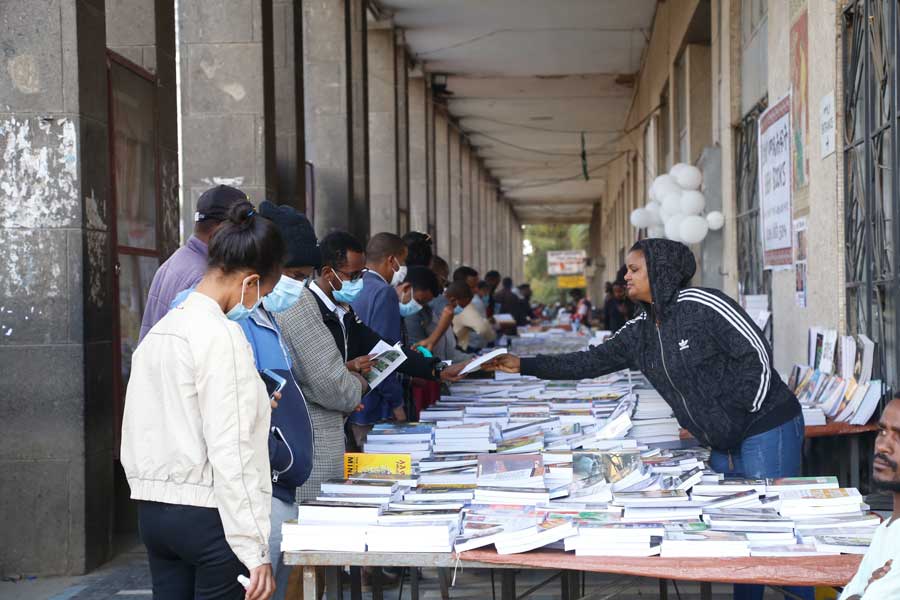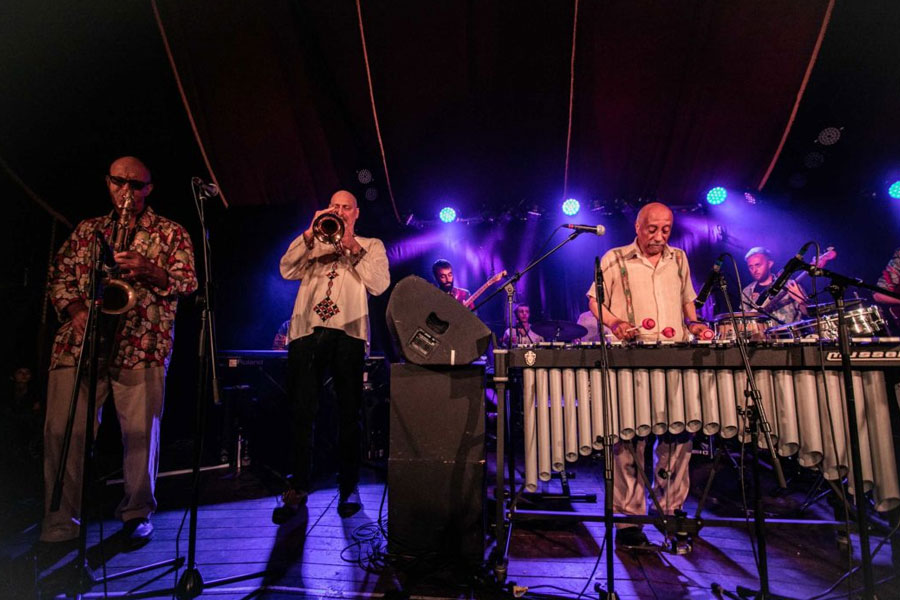
Radar | Nov 29,2020
Once inside a public bus during my college days, a fare dodger was apprehended. We all gave our ears to the ensuing mêlée. Amidst the rumbling, a raspy voice dominated, and we all calmed down. In a flash, I learned that it was Lemma Gebrehiwot, a legendary, gravelly-voiced traditional singer and an iconic rhymer with his Mesenkomusical instrument, known for epic poetry and wordiness.
“Gash Lemma! Are you still alive?” the ticket controller joked.
His comeback whining whimper kicked me with nostalgia, as in those days his songs were barred as others of his type from the media. He bemoaned the contemporary infatuation with foreign musical bands, expressed visually in the imagery of artists on t-shirts, cups and inside taxis.
It was followed with a tremendous mise en scène -- our bus was shifted into one with fans wild-eyed with their idol.
The phrasing, inflexion, breathing, timing and spacing of his notes and connection with the audience were incredible. He had a voice marked with passion and excellent lyrical composition –a mark of his time’s musical golden age.
Among a few of the distinguished mathematics professors I have had in college, one is a lifelong devotee of the leading voice in Ethiopian music for more than half a century. The numbers man was also a connoisseur that exalted Lemma’s incredible beauty and song styles, brought out every time he sang with majestic, rich instrumentation.
Yet to this mathematics professor, it was Tilahun Gessesse’s lyrical content that varied according to the spatio-temporal context of their creation. They were embellished all the more with anecdotes, parables, proverbs, puns, riddles, stanzas, tales, fables and themes of love, family, friendship, liberty, unity, justice and hard work.
These are only two from Ethiopia’s golden age of music, a time when the music repertoire was truly timeless and would outlive that age. With the passing of the decades, many of the musicians stretched into a sad memory; from a sad memory into storied and haunting anecdotes now.
However, this golden age now finds its expression in the fresh-faced youth that appear in vocal talent shows. They try to make a case for their talents by endlessly covering the music of that age. Take Balageru Mert, the TV show, where singing aspirants are challenged with what it takes to sing. Voice resonance and use of harmonics inside of the vocal tract and mouth; space and size to produce the desired sound timbre and approach notes with the correct and consistent air supply; a sense of pitch and how to hit the high notes –- all of these are scrutinised.
They are supposed to prove this in a mere number of minutes, though volumes of music books can be written about each element that goes into making a good piece of music. Thus, the contestants repeatedly turn to the cover versions of the golden age, which they hope makes a case for their musical talents.
The list of hopefuls with an understanding of a chosen cover is terrific. However, there is a need for a considerable time of hard work. Explaining why the golden era’s musical pieces make many of us feel less strange while being elsewhere, less isolated and less alone while listening to them, is barely comprehended.
A great deal of today’s music takes its significance from that time. It is characterised by sombre tunes and lyrics, often about the life of the down-and-out, ingrained with a sentiment of resignation, fate and melancholia or longing, symbolising a feeling of loss.
Shows such as Balageru Mirt help us make sense of the loss of the golden age blend of our music through a renewed focus on continuity and expanding the song genres. It is also uplifting, watching not only judges debating and resolving differences through agreeing and agreeing to disagree. At home, members of households follow suit, arguing who is better, why and what makes for a good vocalist.
PUBLISHED ON
Nov 21,2020 [ VOL
21 , NO
1073]


Radar | Nov 29,2020

Radar | Jun 22,2024

View From Arada | Apr 10,2021

Viewpoints | Aug 06,2022

Radar | Feb 25,2023

Fortune News | Dec 25,2022

Fortune News | Oct 16,2021

Radar | Dec 21,2019

Sunday with Eden | Apr 24,2021

Life Matters | Oct 01,2022

Dec 22 , 2024 . By TIZITA SHEWAFERAW
Charged with transforming colossal state-owned enterprises into modern and competitiv...

Aug 18 , 2024 . By AKSAH ITALO
Although predictable Yonas Zerihun's job in the ride-hailing service is not immune to...

Jul 28 , 2024 . By TIZITA SHEWAFERAW
Unhabitual, perhaps too many, Samuel Gebreyohannes, 38, used to occasionally enjoy a couple of beers at breakfast. However, he recently swit...

Jul 13 , 2024 . By AKSAH ITALO
Investors who rely on tractors, trucks, and field vehicles for commuting, transporting commodities, and f...

Jul 5 , 2025
Six years ago, Ethiopia was the darling of international liberal commentators. A year...

Jun 28 , 2025
Meseret Damtie, the assertive auditor general, has never been shy about naming names...

Jun 21 , 2025
A well-worn adage says, “Budget is not destiny, but it is direction.” Examining t...

Jun 14 , 2025
Yet again, the Horn of Africa is bracing for trouble. A region already frayed by wars...